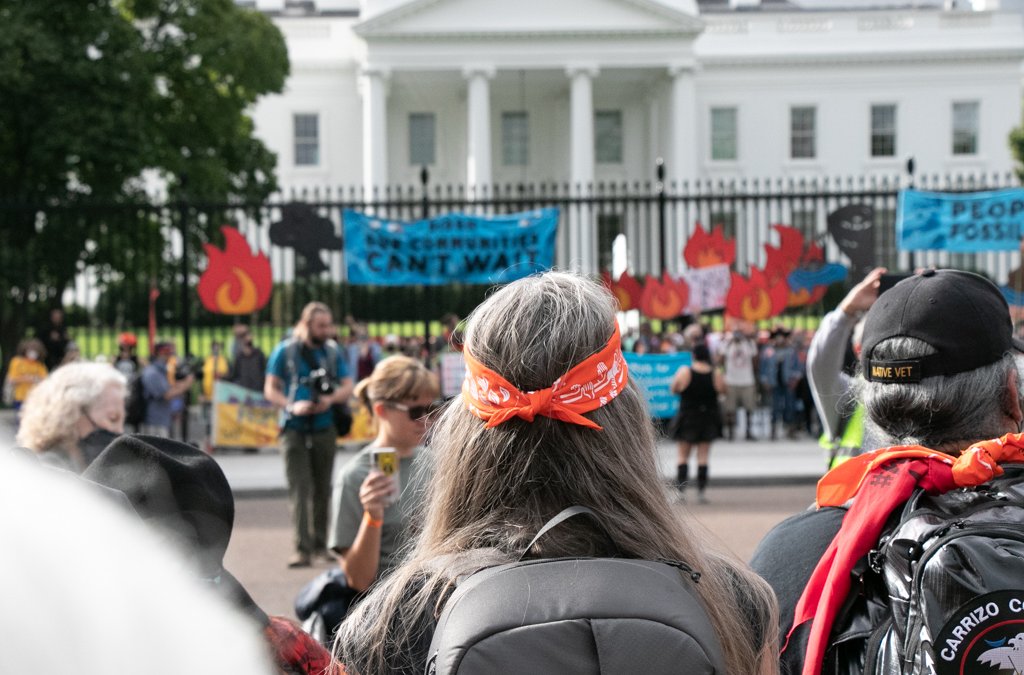WASHINGTON – Mohawk-Seneca elder Kelly Maracle was with her 6-year-old grandson, lying on his stomach while he tapped away at an iPad game. Meanwhile, about 300 Indigenous-led climate activists protested outside the White House on Wednesday to demand President Joe Biden declare a national climate emergency.
Maracle pointed to her grandson, saying, “I’m fighting for him.”
Wednesday’s protests were part of a week of protests and marches led by Build Back Fossil Free to demand Biden end all new fossil fuel projects, protect water sources and declare the state of emergency. They started Monday — Indigenous Peoples’ Day — and will conclude Friday with a youth march to Capitol Hill. Activists gather in nearby McPherson Square at 8 a.m. every morning before marching to the White House.
Law enforcement officers arrested protesters standing too near the White House. They also arrested around 130 people during Monday’s protest, according to news reports.
“They’re putting their bodies on the line,” Maracle said.
Protesters held up posters that read “Biden Our Communities Can’t Wait” and “Racism and Fossil Fuels Make Me Sick!” Others carried cardboard cutouts with painted flames. When the police issued warnings over loudspeakers, the crowd would chant and sing songs to drown them out.
In August, the United Nations declared a “code red” for humanity as temperatures rise. Biden will attend the UN’s COP 26 conference at the end of this month, which will bring world leaders together in Scotland to discuss climate change.
Tammy Rominski, a member of the Red Lake Nation, pushed her walker to the front of a barrier set up across the street from the White House. Battling congestion from a covid-induced coma, she traveled two days from Minnesota to the nation’s capital.
She was upset that Biden did not stop the start-up of Line 3 in June, an oil pipeline replacement project that carries oil from Alberta, Canada to Wisconsin, cutting through tribal lands in Minnesota.
There are already too many chemicals being used on the land, Rominski said. The Red River Valley has high cancer rates because of Roundup, an herbicide chemical local farmers use to grow soybeans.
“In four months, I have gone to three aunties’ funerals, and I found out that one more, my great aunt, has cancer. Growing up, we never had cancer in our family. Now, I’m losing them …,” she said. “It’s heartbreaking.”
Two tears rolled down her cheeks.
“They don’t understand we’re fighting for their families too,” Rominski said, gesturing toward the White House and at police officers in front of her. “They don’t realize what they’re about to get into.”

